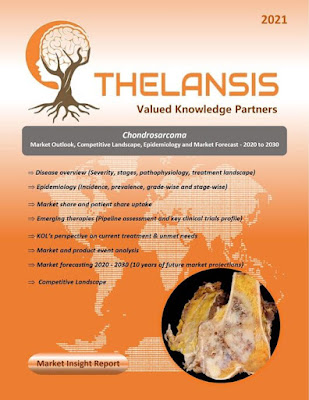Polymyalgia Rheumatica (PMR) – Market Outlook, Epidemiology, Competitive Landscape, and Market Forecast Report – 2022 To 2032
Polymyalgia rheumatica (PMR) is a prevalent inflammatory disorder of unknown origin that predominantly affects elderly individuals from Western countries. It is characterized by intense pain and stiffness involving the shoulders, proximal areas of the arms, neck, pelvic girdle, and proximal regions of the thighs. Patients with PMR commonly experience morning stiffness lasting more than 45 minutes and other non-specific symptoms like fatigue and malaise. Elevated acute phase reactants such as erythrocyte sedimentation rate (ESR) and C-reactive protein (CRP) are typical in PMR. The disease affects women two to three times more often than men and is often linked with giant cell arteritis (GCA), the most frequent vasculitis in elderly people in Western countries, which mainly affects the large and medium arteries, particularly the branches of the proximal aorta. Patients with PMR are typically over 50 years old and present with bilateral pain and stiffness in the shoulders, proximal aspects of the arms, neck, pelvic girdle, and thighs. The disease has an abrupt onset, usually within a few days. Morning stiffness lasts longer than 45 minutes in the affected areas, gradually improves throughout the day, and worsens after rest. Most individuals with polymyalgia rheumatica will receive treatment with oral corticosteroid medication.
·
In the United Kingdom, PMR had an overall
incidence rate of 95.9 per 100,000, with the highest incidence occurring in
older age groups and women.
Thelansis’s “Polymyalgia Rheumatica
(PMR) Market Outlook, Epidemiology, Competitive Landscape, and Market Forecast
Report – 2022 To 2032" covers disease overview, epidemiology, drug
utilization, prescription share analysis, competitive landscape, clinical
practice, regulatory landscape, patient share, market uptake, market forecast,
and key market insights under the potential Polymyalgia Rheumatica (PMR)
treatment modalities options for eight major markets (USA, Germany, France,
Italy, Spain, UK, Japan, and China).
KOLs insights
of Polymyalgia Rheumatica (PMR) across 8 MM market from the centre of
Excellence/ Public/ Private hospitals participated in the study. Insights
around current treatment landscape, epidemiology, clinical characteristics,
future treatment paradigm, and Unmet needs.
Polymyalgia Rheumatica (PMR) Market Forecast Patient
Based Forecast Model (MS. Excel Based Automated Dashboard), which Data Inputs
with sourcing, Market Event, and Product Event, Country specific Forecast
Model, Market uptake and patient share uptake, Attribute Analysis, Analog
Analysis, Disease burden, and pricing scenario, Summary, and Insights.
Thelansis Competitive Intelligence (CI) practice
has been established based on a deep understanding of the pharma/biotech
business environment to provide an optimized support system to all levels of
the decision-making process. It enables business leaders in forward-thinking
and proactive decision-making. Thelansis supports scientific and commercial
teams in seamless CI support by creating an AI/ ML-based technology-driven
platform that manages the data flow from primary and secondary sources.
_page-0001.jpg)

Comments
Post a Comment